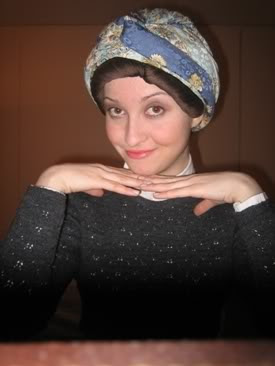NB. The author of this interview is not related to the author of the previous post. It is purely coincidental that they are appearing around the same time.
M: My birth father is a lesbian. Her name
is Gittel (names have been changed to protect the privacy of all of the
individuals in this interview). I don’t see myself telling just anyone this
story. Usually people have a
harder time hearing I am not religious than that my birth father is
transgender. They’ve heard of Off-The-Derech but they haven’t heard of
transgender. But I should start the story at the beginning.
I grew up Orthodox in a large city in the
United States. I have an awesome family. I’m nineteen and the oldest of seven.
Even though my step-dad is not my biological father, he feels like my father. My
mom remarried when I was three years old and I had a very normal childhood. I
didn’t think there was anything different about me. I went to religious school and
youth group and I was very social.
Later, in 10th grade, I had an
advisor, because I had a tough time in school. There were a lot of talks with
my parents. My dad was really pushing me to go to classes, and at some point,
the advisor said, “You don’t have to listen to him. He’s not your real father,” and I responded, “YES HE
IS.” He treats me like his
daughter, no questions asked. I was three when my mother married him, and they
had another five kids together. He treats me the same as the other kids.
When I was younger, and also when I was in
high school, my mom always said my birth-father wasn’t ready to be a father. I
honestly thought he was mentally ill. I thought he was locked up somewhere. So
I didn’t think too much about him. When I was about fourteen, or maybe fifteen,
I found pictures of my dad, because my mom had cut up pictures of me and him
(baby pictures) and removed them from the album. I put these pictures in my
purse and carried them around with me. I don’t know why. I wasn’t missing
anything. I was always told that I looked like my daddy, so there was that. I
would prefer not to look so similar. I would prefer that there wasn’t such an
obvious relationship. It’s funny, because my brother was told that he looked a
lot like my step-father. But he’s also Gittel’s son.
Just before I turned seventeen, when I had
gone out with my friends, my parents called and said they wanted to talk with
me. I was freaking out. I thought I did something wrong! Then, when I came home, they told me that
my grandfather wants to fly me to the Belgium to spend a month with him. I
said, “You scared me! I thought something serious happened! You called me to
come home!?” But then they told me
they wanted to tell me why my original parents got divorced.
That night, when she started talking, first
she brought up an article about Joy Ladin, an Orthodox transgender woman, that
we’d read a year or so earlier. I don’t remember exactly what my mom said when
she began to tell me about my birth father, though I know she never said
anything negative to me. That was difficult, too! My mom hates keeping secrets. We are extremely open and talk about
everything so I am sure it was even harder. Afterwards, my parents told me that
if I had any questions I could ask, but I didn’t have any. My mom wanted to
know how I felt. How should I feel? She just told me that my birth father is now
a transgender woman and a lesbian!
Hearing this story resolved some mysteries
for me. When I was about twelve years old, I guess, I found an old cassette
tape that my mom had recorded ten years earlier, to send to a friend. On it, she
mentioned that she had seen my birth father walking around London with lipstick
and she thought she might have to get a divorce. When I heard that, I thought
my birth father must be a gay man, so I never talked about finding the tape or
hearing what it said with anyone. And
then, when my mother told me about Gittel, my birth-father, it clicked in my
mind.
In general, things don’t bother me. Things
flow over me. It took me a long time to tell most of my friends. I had thoughts
about what it meant about me, about the way they would view me, but part of my
reluctance was sheltering them, for sure. One of my closest friends still
doesn’t know because I know she wouldn’t be able to deal with it.
Apparently, there had been a court order
that Gittel couldn’t contact me until I was eighteen. My mom didn’t think the
court order was a good choice. But for me, I do feel like it was the right choice. Where I grew up, the schools
I went to, the friends I had…my life would have been very different if I had
known about my birth father being a transgender woman. If I knew when I was
younger, I would have dealt with it, but I feel it was very healthy finding out
when I was older and had an open mind. As a younger person, I went to a very religious
school and I am sure a transgender parent wouldn’t have been accepted.
When I turned eighteen, Gittel [not her
actual name] messaged me on Facebook. When she messaged me first, she had
opened up a fake Facebook account in her previous name that was obviously not
real because it had no pictures or messages or friends or anything. I think
after that first contact, she just friended me with her real Facebook, but
there was no conversation. No chat. Still, that was the beginning. Just after
that, Gittel and Zahava (her partner) invited me to their son’s bar mitzvah on Facebook, though the event was a year away. I didn’t think I would
go, but I was trying to figure out if I
wanted to go or not. If it’s something I would be interested in being at.
So I didn’t respond right away. I just left it.
When I was planning the trip, everyone
asked me, “What does your mom think?” But she didn’t speak. At some point, I
confronted my mother and she told me, “I have two worries. 1. You might become
not religious. 2. That you might stay there and not come home.” That was never
in my plans. I know myself. I knew I wouldn’t stay in Europe. I don't even speak French! My mom still has
very positive feelings towards Gittel’s family. She had a relationship with
them. My mom tried never to say anything negative to me about Gittel or about
them. My mom is awesome. She’s really cool.
I can’t put my finger on what ended up
turning me off to religion. I never really connected with it. Then, about a year and a half ago, I
came to terms with not being religious. It is still very difficult for my mom
though, since she doesn’t like the influence I have on my siblings. We fought.
But at one point, she asked me if I no longer keep shabbos and kosher, and I
said I don’t. Then the fights calmed down, after it was all out there. It’s
good to get everything out in the open and not keep secrets.
Anyway, since I had been friends with
Gittel on Facebook for almost a year, I knew what to expect when I finally met
her. It was a good ease into it. I had no expectations for anything so I wasn’t
surprised. I think I try to avoid expectations, I don’t know if it comes from a
healthy place or not. I know Gittel was very surprised to see me in pants, not
because she told me. She’s frum and the pants bothered her.
She says a lot. She says she feels like I
was raised well. And that I lucked out not to grow up with her. I know that she
tried to follow us as much as possible online to find out about us. But there
aren’t any pictures of me or my brother around the house. I was always told
that it’s painful for her not to be part of my life and that she would like to
have a relationship with me and my brother. I was in touch with Gittel’s
cousins, and her family used to tell me that “my father” loves me, or that
“there’s someone out there that’s in pain and would like to have more of a
relationship with you.” But the fact is, there aren’t any pictures of us in
Gittel’s house. We aren’t Zahavah’s kids. I wish (there is a long pause while M
cries) she kept one picture of us from when we were little kids on her desk,
something.
Gittel doesn’t exactly feel like a parent
to me. But if people ask me about “my mother”, I don’t correct them. I’m
nineteen, though, and I don’t feel like I need a new parent. I already have two
parents. Gittel is a relative of mine who I know cares about me. I do care
about her too, but I don’t have words to describe what kind of relation she is
to me.
I think that the frum community, where they
live, people mostly accept them. I don’t see how they could live in New York or
Israel or in some of the other really frum places. I wish it were different. Here,
where they live, there is more acceptance than in other places. The hardest
thing for me is actually that Gittel and Zahava and their children are frum,
more so than any other thing. I don’t know why.
I’ve said this and I believe it: Gittel
made a choice that affected her relationship with us [her children], but I’m
happy about the choice she made. It’s better than growing up with a miserable
father. It enabled me to have a normal childhood. I did luck out.
I wouldn’t change my life. I am happy with
who I am and what I am, even though there is this corner of my life that
doesn’t fit into my world. If I could erase this part of my life, I would. Not
Gittel but the challenge of her. But really, I am at peace with everything I
have gone through in my life.
Now, I relate to Gittel as Gittel. I have a
mother and a father and a Gittel. To someone who doesn’t know, I refer to her
as my biological father or my birth father. But I, myself, I don’t know how to
refer to her. She’s just Gittel to me.





















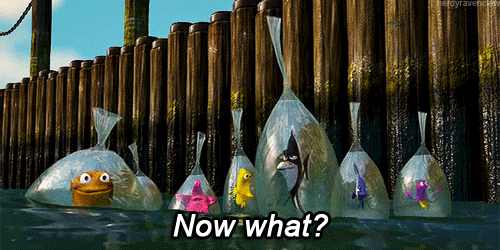


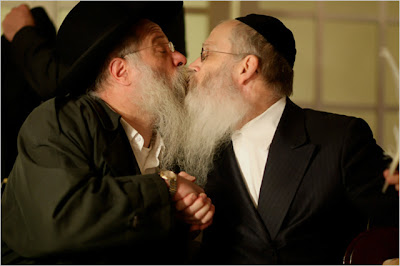
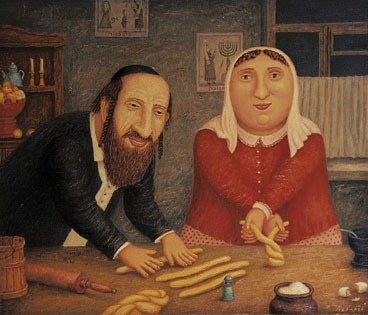

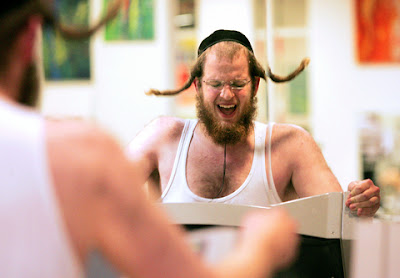



.jpg)























